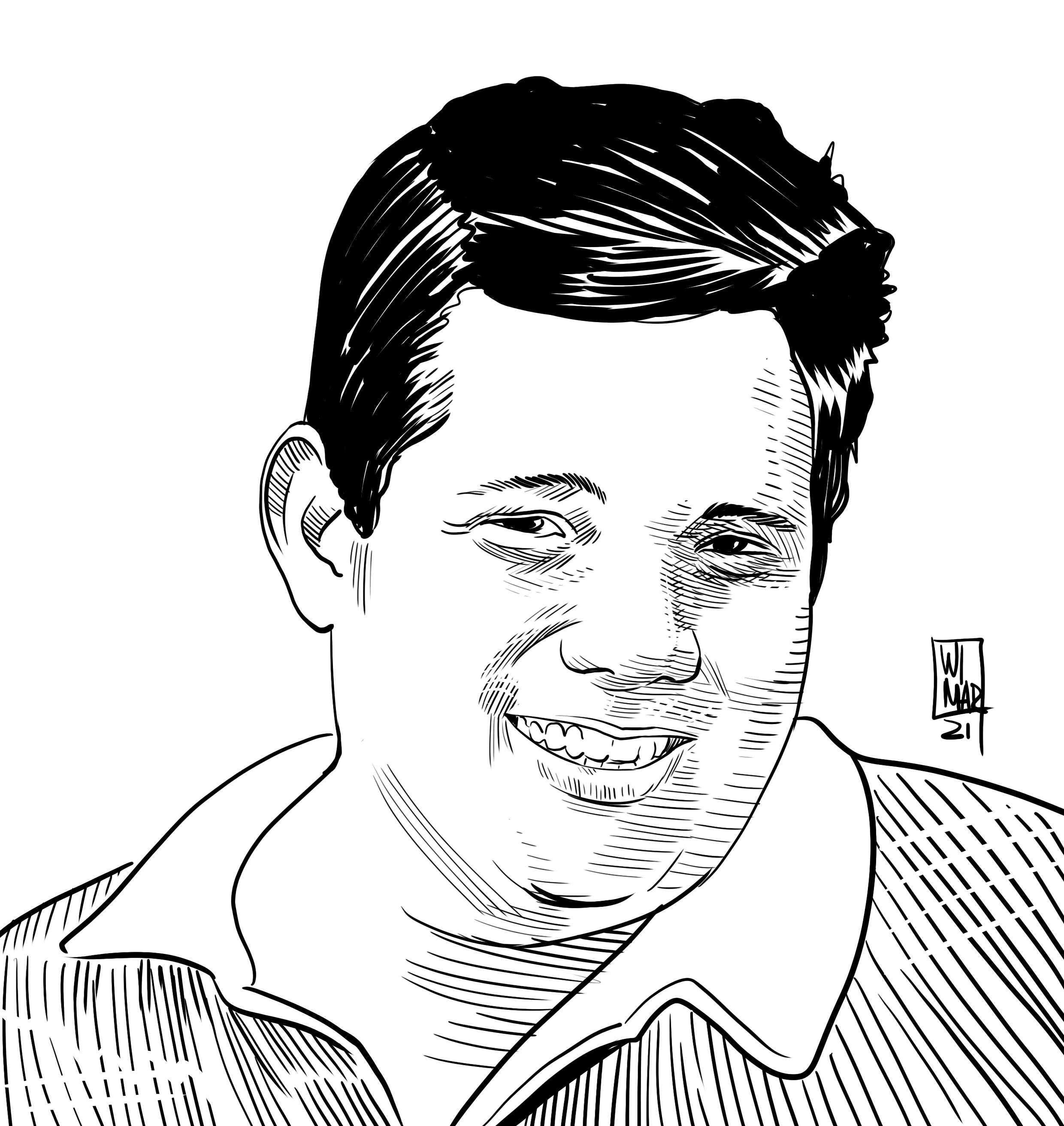She woke up with a patrol car on her street corner. But nothing else… there weren’t any police officers in uniform, there wasn’t any pressure or threats for her to give up on her idea of protesting. She went outside at about 4 PM, because your home can’t be a prison, much less when you haven’t broken any law.
She wasn’t even allowed to make it to the street corner. Two police officers. She was able to make out their captain and major badges. They took her cellphone from her, the only and fearsome weapon she had on her. They didn’t show her an arrest warrant at any time. They didn’t explain what was happening either.
They just arrested her, by force, without any document to warrant her arrest, without a conversation to mediate the situation. They just left her alone, in the patrol car. She asked to go to the bathroom. She needed to go to the bathroom. Kidney problems, she said. They completely ignored her. In response, she wet herself, leaving a huge puddle in her seat that was now her jail.
They wanted to force her to clean it up. She told them that she didn’t take orders from anyone, that they could clean it up if they wanted to. When they let her go, they gave her the cellphone back, bent and cracked like a broken cracker. A useless weapon. Scrap metal and proof of empowered arrogance.
Camila is her name. Camila Acosta. She graduated in Journalism in 2016, she is barely 27 or 28 years old. She has moved from one rental home to the next in Havana, because State Security have put pressure on her landlords and they have thrown her out onto the street. Her voice doesn’t waver when she speaks. Almost at the end of the livestream, she says that the police continue outside her home. They are still on the street corner… They have already warned neighbors… “We’ll see… They won’t keep me quiet.”
“They won’t bring me down”
“This beast dragged me to the patrol car,” she says. Not even her obvious rage can dim the trained diction of over 20 years teaching, “swallowing chalk”.
“They are beasts, they are murderers… What FMC (Cuban Women’s Federation) can they talk to me about? What women’s rights can they talk to me about? What comprehensive gender-based violence law can they talk to me about?… when a guy drags me down the street…”
When dragged down the street, in a struggle she didn’t ask for, one of her cancerous lesions began to bleed. She didn’t discover this until she got to the police station, when a police officer pointed out that she had blood on her dress.
“I’m not a mercenary,” she says again. She tells us that she is hungry, that she hasn’t been able to have a shower, that she is worried. Nonetheless, she said she has to denounce what is happening, above all else. Because there is a young man in prison, Denis, a young man who has been locked behind bars to scare other rebels, and this must be denounced.
Fear, this is the key. They remain in power by inciting fear, she puts into a small cell phone. However, she says that they will have to kill her.
“I don’t want to even look at myself. I don’t want to have to take off my dress. I don’t want to have to shower. I don’t want to see what they have done […]. But I will have to be strong…”
This is when her voice wavers a few decibels, and almost breaks. But we have no idea where she gets the energy again to recover her accusatory tone, in just milliseconds.
“I am going to have a shower, I will clean this blood, I will treat the wound with iodine and I will carry on. They won’t be able to break me.”
Omara is her name. Omara Ruiz Urquiola. She is an art historian, researcher. She was a university professor until she was kicked out of the classroom. But she has decided to continue teaching. Teaching all of us.
“Looking Power in the eyes”
She was holding onto the gate at the Cultural Center, near Damas and San Isidro streets, in the heart of deep Havana. She told the officers a thing or two from that uncomfortable position, while they tried to pry her free from the gate.
They began to pull her fingers off the gate. Dragging her to the patrol car. They broke her nail. It bled. They carried her away. Several police officers. Forcefully. She managed to open the patrol car door again until they completely immobilized her. She managed to see the number of the patrol car: 966.
She explains calmly. Her voice is gentle and firm… her slim fingers trying to draw and understand in the air…
Chaos came back into her life the other day. They wanted to put her into a patrol car. She ran away. The patrol car following her. With the sirens blaring and everything, to make the abuse even more dramatic.
Then, at the police station, she received the age-old police technique of “good cop/bad cop.” First, a State Security officer came and said that they only wanted to “talk”, “understand”. Nothing.
Then, the tough guy came. The Macho. The Big Boss. Lieutenant-Colonel Vladimir, he told her. With no more politeness than his trousers, he blurted out that the only thing she had to do was obey. She didn’t respect this code, so he insulted her, shouted at her. That she was a shame to her family, a mercenary, a sell-out, irreverent. That she should be happy because they were going to let her go, this time. But that a criminal case against her was on its way, surely on its way.
We can’t let this keep happening, she says now. She still has the strength and brain power to reflect upon what they are suffering: “a violence that moves at an irregular pace but is always growing.”
“Changes are already happening, the moment you tell them: Stop this violence! You can’t repress me. I’m a human being just like you are, I’m Cuban just like you […]. Words have great power. Looking into somebody’s eyes has great power. They aren’t able to look you in the eyes, but you can…”
At the end of our conversation, she tries to smile, a smile tormented with anguish, but it still has some hope. Anamely is her name. Anamely Ramos. She has a Masters in Cuban Cultural Processes and is studying a Doctorate remotely, from a university in Mexico. Nobody would know where so much restraint comes from to dissect her pain.
Freedom: the greatest sin
I’m taking note of three direct experiences. Three of the many who, since October 10th until the present day, have made activists of Cuban civil society, mostly young people, mostly related to the San Isidro Movement (MSI), an uneasy mountain in the archipelago’s civic plains.
Direct experiences because they are being streamed on the Internet, live, and also because the words they use are direct, hitting you in the chest. You can agree or disagree with what they think. You can appreciate their methods more or less. You can even label them rash, insolent, vain, outcasts, whatever you like. But it’s pretty much impossible to ignore one thing: these women and men are planting the flag to say and act freely in an environment where freedom seems to be the greatest sin.
Right now, Omara and Anamely are members of the group that bunkered down at Damas 955, to demand Denis Solis’ release, the artist arrested and sentenced to 8 months in prison in a summary trial, for “contempt”. Camila is one of the journalists who is constantly reporting the fate of those who resist.
They are three women. Talented. Intellectuals. Brave. They could and would like to have a conversation with any reasonable representative if this representative didn’t want to crush them with their arrogance. These women and Luis Manuel Otero, Maykel Castillo and Oscar Casanella, and the others who are silently crying out with a hunger strike since November 18th, are exercising the dangerous role of citizenship – in their own way.
Is it really so hard for those in power – which is so absolute in this country – to give them a little bit of recognition? Does this reality form part of a parallel universe because it isn’t on official media’s agenda? Is it a country that doesn’t exist within another that is collapsing?
Oh, our dear Cuba… but you can’t cover the sun like you could back in the old days. People see what’s happening and they keep memory of it, they compare and feel it. They get tired too sometimes. Countries are born from imaginary countries too.
This article was translated to English from the original in Spanish.







